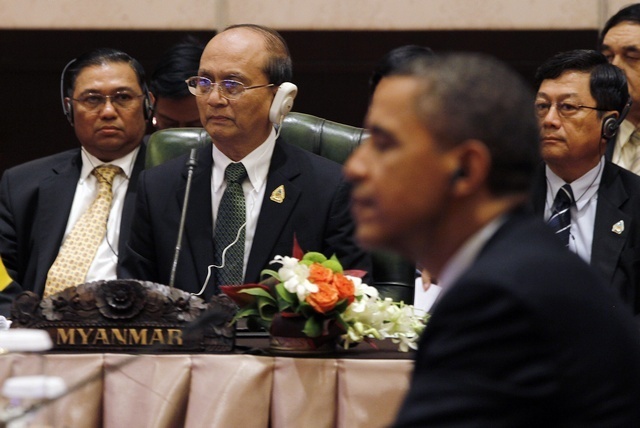On July 11, 2012, the US government opened the door for American companies to invest in Burma for the first time in 15 years. This move came despite the absence of effective or functional systems to ensure that new investment — even from those intent on doing business responsibly — will not exacerbate rights abuses in ethnic minority states or undermine prospects for democratic transformation.
I recently travelled to Rangoon, as well as villages around the Dawei Special Economic Zone and on the Burmese border with Thailand. From what I witnessed on the ground and the people that I spoke with, the US’s new policy on investment in Burma will fall short of serving the goals of promoting peace, preventing human rights abuses and supporting political reform. Further, the practical difficulties and risks that new investors in Burma will face were significantly apparent.
New US investors in Burma are subject to reporting requirements on their policies and procedures for assessing human rights, anti-corruption as well as environmental and labour rights impacts. They are also asked to report on land rights, security arrangements and payments made to the Burmese government. Full and accurate disclosure will be essential to determine the true impact of investment, and can serve to aid civil society in monitoring and holding corporate actors accountable.
However, the current policy is void of guidance or systems for practical implementation of these requirements, leaving Burmese citizens poorly protected. Of further concern is the fact that there are no penalties for companies that fail to report thereby decreasing incentives for companies to fully disclose pertinent information.
The US government has also failed to provide comprehensive and current information about those responsible for human rights abuses and corruption in Burma. They have also failed to address adequately the risks posed by problematic sectors like oil and natural gas.
According to U.S. regulations, new investors are not allowed to have business dealings with individuals, entities or companies that are more than 50 percent owned by persons included on the US government’s Specially Designated Nationals (SDN) list. As part of this mechanism, the US government plans to add any person or entity that threatens peace, security or stability in Burma.
These lists are key tools for new investors looking to do business responsibly because they highlight Burmese business actors that should be avoided. However, the US has yet to identify threats to peace in Burma and the current SDN list remains significantly out of date, putting companies at risk of unknowingly doing business with problematic actors.
[pullquote]“A change from the ‘old ways’ of doing business will certainly not happen overnight”[/pullquote]
Further, as established by Burmese regulations, various industries require investors to work in partnership with local entities. This requirement exposes even a diligent new investor to significant risks. One particularly problematic sector is the oil and gas industry, which is infamously associated with bad actors that are connected to human rights violations and corruption, and fit for sanctions.
One example is the Myanmar Oil and Gas Enterprise (MOGE). Under the new US reporting requirements, American investors must report any deal with MOGE to the State Department within 60 days. However, they are still permitted to do business with the state-owned oil and gas entity. MOGE has been the Burmese government’s top revenue earner and main source of funding to its military. The company has a record of corruption and of committing human rights abuses in ethnic regions where oil and gas pipelines are being constructed.
While there are other options for partnership in the oil and gas sector, high fees associated with creating and maintaining new business favours privileged access to licenses, permits and contracts for Burmese business actors. The Burmese government is attempting to ensure that the economic elite, generally those with close ties to the military and powerful politicians, will not continue to be the sole beneficiaries of the industry.
However, corruption remains a significant problem. Because personal connections with Burma’s elite are essential to achieving successful and timely deals, companies face the prospect of compromising their compliance with standards for responsible business in order to operate in the country.
The current business environment in Burma is not conducive to the level of responsible investment required for US corporate compliance with anti-corruption legislation and sanctions. A change from the “old ways” of doing business will certainly not happen overnight and the policies and procedures necessary for new investors and their local partners and subsidiaries to meet these obligations must be in place prior to any new investments in Burma.
The new US policy fails to go far enough to hold new investors to the level of due diligence necessary to meet the policy goal of promoting peace and preventing human rights abuses. While I was in Rangoon, many people assured me that investors are visiting in droves, but are quickly realising the realities of the lack of transparency and difficult operating environment in Burma. Yet, the rich natural resources mean that deals will be made and contracts will be signed.
Unwitting new investors who fail to see the risks of supporting corruption and human rights abuses will likely leave Burmese citizens worse off while helping the elite to grow even wealthier.
– Eryn Schornick is a Research and Engagement Specialist at Conflict Risk Network a project of United to End Genocide.



